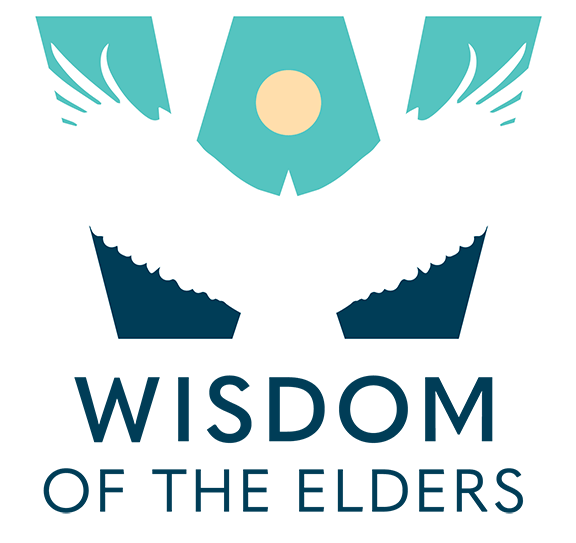Louis Adams
with Nico Wind
[audio:https://www.wisdomoftheelders.org/prog302/mp3/302_tr.mp3]Arlie Neskahi:
Today, many families on the Flathead Indian Reservation continue to practice the age-old ceremony of the sweat lodge. Although some Salish families have been devout Catholics for generations, the sweat lodge is still a sacred place in which to pray to the creator. On today’s Tribal Rhythms, Nico Wind introduces us to Salish elder Louis Adams, who has maintained his ancestors’ sweat lodge traditions for future generations.
Nico Wind:
Louis Adams was born in 1933 on the Flathead Indian Reservation near a town called Arlee. It’s located in the Jocko Valley about a half an hour northwest of Missoula.
Louis Adams:
Whenever you’re going to build a sweat house, you find your area, measure it out, and then you put up your heart of your sweat house. And that’s two poles, two sticks going north and south, and two sticks going east and west. That’s the heart. Then you put the rest of the sticks on it. The structure is its ribs, because a sweat house is like a living thing.
Nico Wind:
The sweat lodge is framed with red willow and covered with blankets and canvas. During the ceremony, water is poured on hot rocks in a pit near the entrance of the lodge. Participants feel the hot steam rise in the dark enclosure that marks a sacred boundary.
Louis Adams:
It goes since the beginning of time. That was just like our people’s churches. The old people that I got to sweat with, they’d praise Tupia right there in the sweat house.
Nico Wind:
Louis uses the word “ Tupia ” which means grandmother or grandfather. Tupia is the spirit in the sweathouse.
Louis Adams:
He lives there. And they’d say, “Throughout the years, our ancestors knew of you. (l) you were laying by lakes and streams throughout this country wherever our people roamed, wherever they built a sweat house.” But they always said that it cleans your spu-oos, your heart, your mind, because after you sweat and you come out, you feel good, renewed.
Nico Wind:
In the 1950’s, ethnomusicologists Alan and Barbara Merriam recorded Louis’s parents as part of their study of traditional Salish music. Many Native people are suspicious of non-Indian collectors, but the Adams family gave permission to the Merriams to record these and other songs. Over the years, both families developed a life-long relationship of mutual respect and friendship.
Louis Adams:
They were willing to do that and they got to be good friends with Alan and Barbara. So they didn’t think there was any harm in it. It saved some of the songs that they knew.
Nico Wind:
Everyone sings together, keeping time by hitting the sweat stones or the floor with sticks. The Merriams recorded these songs on a reel-to-reel tape recorder and asked one of the sweat house participants to hold the microphone.
Louis Adams:
And all the songs that I grew up with is what my folks grew up with – is what their folks grew up with – because these songs come from forever. It would probably come from the mountains, from animals or something. See, some of the sweat house songs, I guess you could say, sometimes there’s little sadness. Maybe it’s when they think back of who they lost, you know. That’s why there’s sweat house songs that touch you. Sometimes I play a song that maybe Jerome sang, maybe my dad, and I feel bad.
Nico Wind:
These songs embody the memory of the people who sang them, his parents, his aunts, uncles and grandparents.
Louis Adams:
In the evening, I’d go out on the porch with my uncle. And he’d look around. And he’d pick out the smoke coming from all different places, people making sweats. Just like a TV channel, he’d choose where he was going to go sweat and away he’d go.
It was a place of happiness, not only of praying for good things in a sweat house because Tupia’s there, but it was a happy place. They sang as loud as they could. People had fun in the sweat house. They told stories and talked.
Nico Wind:
The sweat house is an integral part of Louis Adams’ life and his family’s. His children and grandchildren continue the practice to this day, singing the songs that are as old as forever.
For Wisdom of the Elders, this is Nico Wind.


